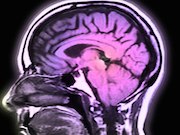Increased risk compared to those without a history of TBI and those with non-TBI trauma
WEDNESDAY, April 11, 2018 (HealthDay News) — Traumatic brain injury (TBI) is associated with increased risk of dementia, according to a study published online April 10 in The Lancet Psychiatry.
Jesse R. Fann, M.D., from the University of Washington in Seattle, and colleagues examined the correlation between TBI and subsequent long-term dementia risk in a nationwide population-based observational cohort study. Data were included from a cohort of 2,794,852 individuals at risk of dementia, for a total of 27,632,020 person-years.
The researchers found that 4.7 percent of individuals had at least one TBI during 1977 to 2013 and 4.5 percent had incident dementia during 1999 to 2013. People with a history of TBI had a higher fully-adjusted risk of all-cause dementia (hazard ratio, 1.24) compared to those without a history of TBI; the risk of Alzheimer’s disease was also increased (hazard ratio, 1.16). The highest risk of dementia was seen in the first six months after TBI (hazard ratio, 4.06), and the risk also increased with an increasing number of TBI events (hazard ratios, 1.22 to 2.83 for one TBI to five or more TBIs). TBI correlated with elevated dementia risk compared to individuals with a non-TBI fracture not involving the skull or spine (hazard ratio, 1.29).
“TBI was associated with an increased risk of dementia both compared with people without a history of TBI and with people with non-TBI trauma,” the authors write. “Greater efforts to prevent TBI and identify strategies to ameliorate the risk and impact of subsequent dementia are needed.”
Full Text (subscription or payment may be required)
Editorial (subscription or payment may be required)
Copyright © 2018 HealthDay. All rights reserved.








